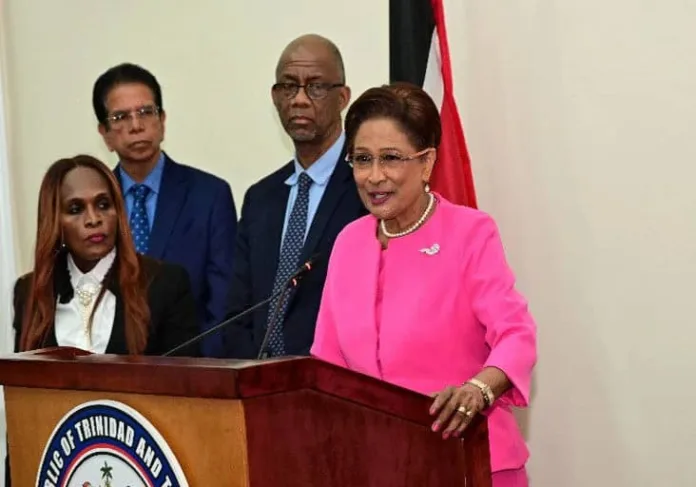Hanging as a death penalty cannot be legally enforced at this time, Prime Minister Kamla Persad-Bissessar said yesterday.
She said this was based on a report provided to her by Attorney General John Jeremie on the matter.
Speaking at yesterday’s post-Cabinet news conference at the Red House in Port of Spain, the Prime Minister explained that according to that report, the number of inmates on death row as of May 10, 2025, is 38.
“Of these inmates, only 18 are eligible to be hanged, if we accept that these 18 have been sentenced to death and are yet under the timeline established by Pratt and Morgan ruling under the Privy Council.
So, that is only these 18 condemned inmates under the five-year timeline…the other 20 are over the timeline as they have appeals pending.
“In terms of how many inmates can face the death penalty or have the death penalty be carried out at this time, that is to say whom among the 18 can have a death warrant legally read out to be executed—unfortunately, or fortunately for some, the answer is none, given the state of the law,” said the Prime Minister.
She added, “Of these 18 condemned inmates, one has an appeal pending before the Privy Council; the other 17 have cases pending before the local appellate court, Chamber of the Supreme Court.
“It can be said therefore that until these appeals are heard, the death penalty cannot be lawfully carried out at this time, even among the 18.”
Asked if the appeals made by the 18 inmates could be expedited to fall within or under the five-year period, Persad-Bissessar responded, “I will ask my AG to adjust his mind to it.
And remember, we have a whole new justice ministry now…because of delays in the justice system, it will take us a few days more than ten days. We can look at that solution.”
The last set of hangings were carried out in 1999 when alleged drug kingpin Dole Chadee and eight members of his gang were executed between June 4 and June 7, 1999, for the 1994 murders of the Baboolal family; and Anthony Briggs was executed on July 28, 1999, for the murder of a taxi-driver during a robbery.
While Trinidad and Tobago was initially a signatory to the American Convention on Human Rights on May 26, 1998, it became the first country to denounce the convention, with the denunciation taking effect one year later, on May 26, 1999.
This was due to concerns over the death penalty, as the country’s mandatory death penalty for murder conflicted with the convention’s human rights provisions.
At the time of Trinidad and Tobago’s withdrawal from the American Convention on Human Rights, the Attorney General was Ramesh Lawrence Maharaj and the Minister of Foreign Affairs was Ralph Maraj. Both served under a United National Congress-led government.


